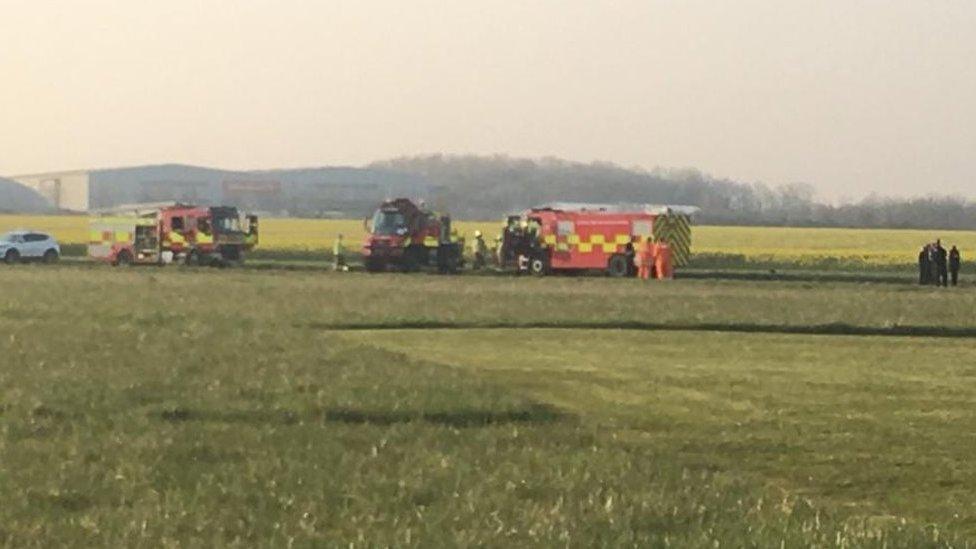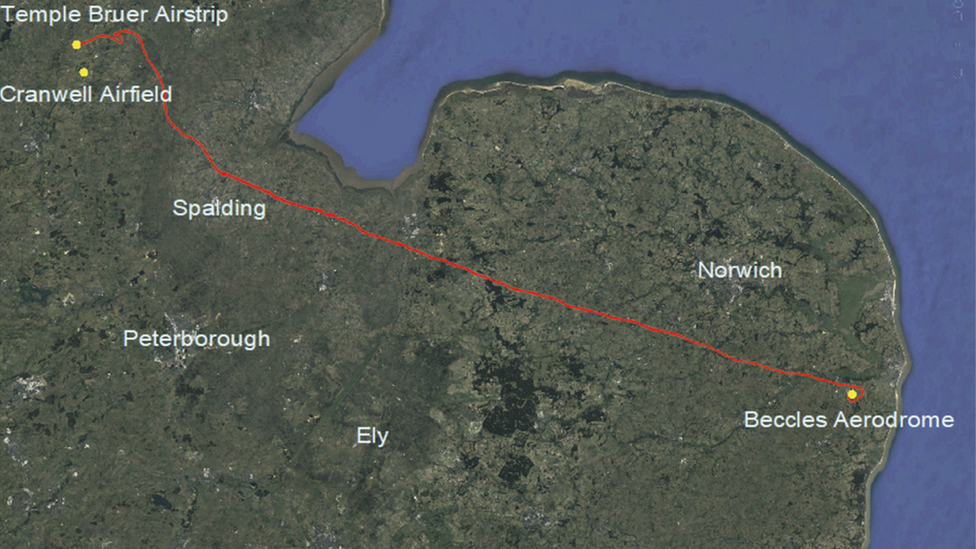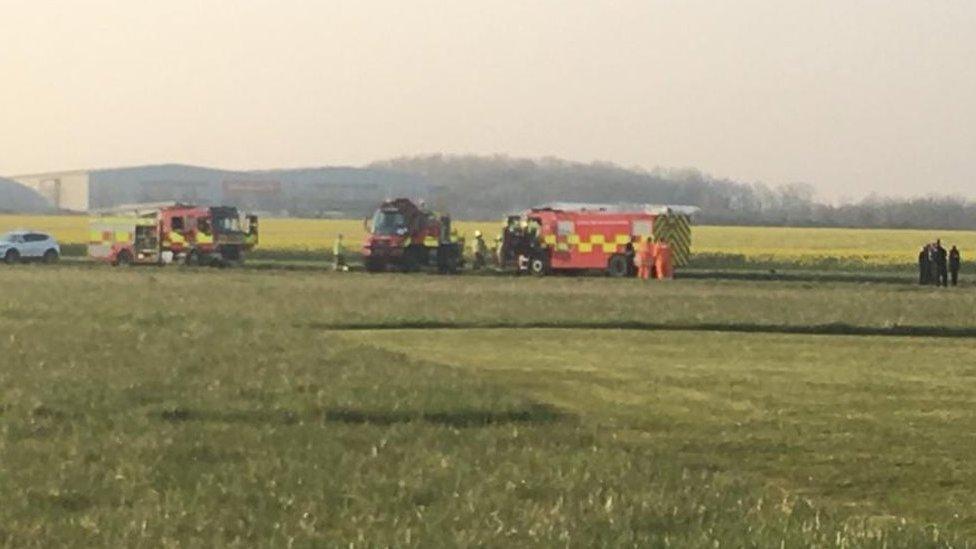Beccles Airfield: Age of elderly pilot may have been factor in crash
- Published

Emergency services were called to the crash at Beccles Aerodrome in March 2022
The age of an elderly pilot may have contributed to his death in a light aircraft crash, investigators say.
The unnamed 87-year-old died when his aircraft bounced on landing and crashed at Beccles Aerodrome in Suffolk on 24 March last year.
A report by the Air Accidents Investigation Branch (AAIB) said there may have been "age-related deterioration in performance".
The pilot suffered multiple trauma injuries and died at the scene.
The air accident report, external said the pilot, a member of a small aviation group, had set off alone from Temple Bruer airstrip, close to RAF Cranwell in Lincolnshire, in a two-seater Flight Design CT2K aircraft.
Eyewitness accounts of the aircraft's approach to Beccles airfield, at about 14:00 GMT, described it as "unstable" and the it bounced twice and "probably stalled" before falling to the the ground in a field next to the runway.
Examination of the wreckage did not reveal any pre-accident defects, it revealed.
The report also said the pilot was familiar with the aircraft but the "landing diverged from his intended plan".

The 87-year-old was flying from Temple Bruer airstrip in Lincolnshire to Beccles Aerodrome in March 2022
His family had said he was getting to the stage where he was "slowing down" and was "coming to the conclusion that he would have to stop flying in the near future".
The report said: "Given the pilot was 87 years old and recognised he would likely have to stop flying in the near future, it is possible that some age-related deterioration in human performance was a factor in this accident."
The AAIB said its investigation highlighted a lack of medical guidance for pilots and medical professionals who use the Pilot Medical Declaration (PMD), where pilots can self-declare their fitness without input from a GP.
It also identified a "cohort of private pilots who are not subject to an independent professional assessment of age-related deterioration in their ability to pilot".
'Well-regarded'
The man who died had held a pilot's licence since 1989 and gained a microlight endorsement in 1991, which, as it was issued before 1 February 2008, did not require a training flight with an instructor for licence revalidation.
He had a medical declaration valid until 21 December 2024 and his aviation skills were "well regarded by his peers" at Temple Bruer.
The AAIB recommended that the Civil Aviation Authority (CAA) provided guidance for medical professionals to promote awareness of the medical standards required by the Pilot Medical Declaration scheme.
The CAA has told the AAIB that a review of the PMD scheme is under way.

Find BBC News: East of England on Facebook, external, Instagram, external and Twitter, external. If you have a story suggestion email eastofenglandnews@bbc.co.uk
Related topics
- Published24 March 2022
